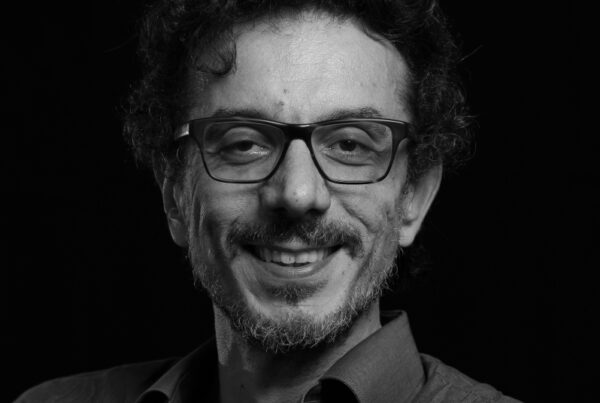Born in Rome in 1979. Graduated in particle physics at the University of Rome "La Sapienza" in 2002. PhD in theoretical high energy physics at SISSA (Trieste) in 2005. Postdocs at IFAE and at the École polytechnique fédérale de Lausanne (EPFL). In 2011, tenured Researcher at the University of Padova, and Associate Professor since 2016. Joint CERN/EPFL Staff from 2016 to 2021. ICREA Research Professor since October 2022.
Research interests
I am a particle physicist. My mission is to unveil the microscopic laws that govern the fundamental particles and their interactions. I study what these laws could be and how they manifest as concrete predictions for a multitude of experimental measurements that are being and will be performed at particle colliders. Devising strategies to extract maximal information on fundamental physics laws from the data collected at the Large Hadron Collider is a main focus of my research. Another goal is to identify new pathways for further progress at ambitious future collider projects and in particular at a muon collider of very high energy. I attack these questions by employing and developing theoretical tools for predictions based on the fundamental principles of quantum mechanics and special relativity, combined in what is known as "Quantum Field Theory", as well as statistical and statistical learning tools for comparing the predictions with the experimental data.
Selected publications
- Chen SY, Glioti A, Panico G, Wulzer A 2024, 'Boosting likelihood learning with event reweighting', Journal of high energy physics, - 3 -117.
- Nardi F, Ricci L & Wulzer A 2024, 'Low-virtuality splitting in the Standard Model', Journal of high energy physics, 10 -215.
- Grosso G, Letizia M, Pierini M & Wulzer A 2024, ‘Goodness of fit by Neyman-Pearson testing’, SciPost Phys. 16 - 5 - 123.
Selected research activities
In 2024, I continued disseminating the muon collider R&D project. The topic is particularly timely in preparation for the forthcoming update of the European Strategy for Particle Physics. I was thus invited to give a number of talks:
- Seminar at the workshop "LFC24-Fundamental Interactions at Future Colliders" held at SISSA, Trieste.
- Seminar at the "Hokkaido Workshop on Particle Physics at Crossroads", Hokkaido University, Japan.
- Seminar at the "Zurich Phenomenology Workshop", Zurich University, Switzerland.
- Colloquium at the Physics Department of the University of Genova, Italy.
- Seminar at CEA Paris-Saclay, France.
- Talk at the "Jornada de la red española de futuros colisionadores", Valencia, Spain.
In addition, I gave an ICREA Colloquium about muon colliders.
I also gave invited seminars about AI for high energy physics:
- Conference "Physics in the AI era", University of Pisa, Italy.
- The "AI Goes MAD2" workshop, IFT Madrid, Spain.
I was reviewer of a Synergy Grant application for the ERC. I continued my regular work as referee for international journals.
I obtained as co-PI of the grant "Física de Partículas, Gravitación y Cosmología en la Frontera" (556'200 Euros, 6 senior participants), which was awarded in 2024 by the AEI in the context of the program "Proyectos de Generación de Conocimiento".
I gave the High Energy Physics part (50%) of the course "Introducció a la Física del Cosmos" for the Master program of the UAB.
I gave a course on "Collider Physics" at the doctoral school "GGI Lectures on the Theory of Fundamental Interactions".
